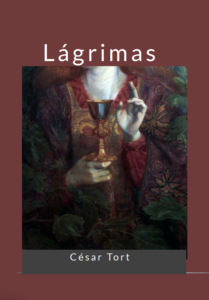See Devlin’s obituary
here, published today.
Category: Obituaries
Alex Linder
(1966-2025)
I was informed that Alex Linder has passed away (see an eponymous site here and the sad news on X here).
If our friend Jake has a backup of the WDH Radio Show from June 2, 2017 when Joseph Walsh, Jake and I spoke with Linder about the Christian Problem, it would be great to link it in this obituary. It’s the only recording that features Alex Linder, Jake and yours truly in a podcast (remember: the 2017 recording was gone when SoundCloud deplatformed us).
Update: Link to the backup of that episode of the WDH Radio Show is here! (see first comment below). Also, like us Linder was an exterminationist.
Alejandro Tort
(1923–2025)
My uncle Alejandro Tort, the only surviving sibling of my father, died today at the age of 102.
If we recall my first entry on the review of Consumption, we will see that part of the murder of a soul is that adults don’t want to know the tragedy that occurs in their family. For example, we saw that Benjamin’s mother not only failed to ask him what had happened when he was raped at the age of six, but when he dared to tell her decades later, she trivialised what had happened: something that only adds insult to injury.
Countless things like this have happened to me, not only when trying to communicate it to my (now deceased) parents, but also to relatives. I talk about it in the middle part of my Hojas Susurrantes, translated into English here, in the series “Nobody wanted to listen”. It’s curious how in that 2020 translation I still wanted to protect, to some extent, the identity of my sisters by slightly changing their names. For example, instead of Corina, I used “Korina”; and instead of Genoveva, I used “Genevieve”. Now I don’t give a damn about those scruples.
In that section of Hojas Susurrantes I also mentioned cousins, acquaintances and even so-called mental health professionals. No one wanted to listen to me except for a woman who had romantic hopes for me, Paulina, whom I talk about in the eleventh entry of that translation. But Paulina listened to me twenty-two years after the tragedy that killed the souls of Genoveva, Corina, and me; that is, when the damage was already done.
Corina, who died in 2016, used to visit Uncle Alejandro and his daughters, our first cousins, trying to unburden herself to them about what our mother was doing to her. They never listened to her. And when a year ago I sent Nina and Alejandra, the daughters of the uncle who died today, the first two books of my trilogy, all I received was an email dated 24 June 2024, which I translate below:
Hello Cesar
I want to let you know that I already picked up the books, I gave Nina hers, and I’ve been leafing through both of them. From what I’ve read so far, I think they will be very interesting: Your own perspective and point of view on important family events.
I will read them carefully (both of them) and then I would like us to get together to discuss them. Thank you in advance for the books and for taking the trouble to send them.
Alejandra Tort
Since then, I have heard nothing from Alejandra, let alone Nina, who didn’t even bother to reply to the printed letter I sent her along with the book.
Corina was treated the same way in Uncle Alejandro’s large house. And Benjamin too. However, according to Benjamin, the only one who finally dared to read his book was his mother—although she died a few days after reading it, and finally feeling sorry for her son!
How can I go to the funeral tonight if Uncle Alejandro didn’t treat me well when my parents were destroying my life? He never tried to find out anything and in 1983, when I was living with his mother, my grandma Mecho, he even wrote me a letter repeating the slander he had heard from my mother without asking me if it was true (I still have his letter).
Corina, like me and countless other children abused by their parents, was destroyed because no one wanted to listen to her. This is an endemic phenomenon. The massive damage that abusive parents cause to their offspring is the greatest taboo of the human species. No one wants to know about it although there are sometimes exceptions, such as Benjamin’s mother very shortly before she died, or Paulina, who read my Letter to mom Medusa in her home country while I was living in Houston.
Well, it’s better that one person listens to us than none! When I recently mentioned in the comments section that in 2018 my first cousin Octavio Galindo, with whom I was very close in the 1980s, had strangled his teenage daughter and then hanged himself, I omitted that he had no one to confide in. I would have listened to him attentively and even helped him, but I was unaware that his depression was so severe. That’s what happens when there is no communication about serious problems in a family. I mention his case in Lágrimas (Tears), the final book of my trilogy.
 I feel like expanding the section on “No one wanted to listen” linked above by talking online about many other relatives who have mortally offended me with their deafening silence, even after sending them my books. But I also have to do something about the fourteen words.
I feel like expanding the section on “No one wanted to listen” linked above by talking online about many other relatives who have mortally offended me with their deafening silence, even after sending them my books. But I also have to do something about the fourteen words.
Uncle Alejandro was not a bad person, nor are my cousins mentioned above. But I won’t see these women at the funeral tonight. They are just like everyone else: the children’s complaints about abusive parents are simply ignored even though if, addressed, tragedies like what happened to Octavio could be avoided.
Tom Goodrich
(21 November 1947 – 4 December 2024)
Michael Thomas Goodrich (born Michael Thomas Schoenlein), the author of what I consider the most important book written in English this century, died on Wednesday.
Not long ago, I exchanged my last correspondence with him, telling him I wanted to promote his books on this site; today, his publisher confirmed that he had passed away (see this Thursday’s interview esp. from 1:50).
Even in the last book of my autobiography in Spanish, I leave the reader with the thankless task of reading Hellstorm since without that reading, my mental transformation—from liberal to conservative, from conservative to white nationalist, and from white nationalist to National Socialist—could not be understood.
Goodbye, Tom. There are no writers like you left in your country. May some English speakers at least pick up your torch….
Suicide note
Henry Wallis
The Death of Thomas Chatterton ~ 1856
Tate Gallery
Editor’s Note: Exactly one year ago, on July 20, 2023, my mother passed away and yesterday one of the smartest commenters on this site informed me that he was going to commit suicide today, on July 20, 2024. I sent him three emails: two begging him not to do it (in the third I asked for his family photo), that we needed people like him. He has not replied to them and I don’t know if, at this point in the day when he said he would commit suicide, he finally did it. But that suicide note is so disturbing to me that, if I don’t post anything in the next few days, it’s because I’ll be working on a long article that I might title ‘About the commenters on this site’.
Below I post the email that the commenter sent me, who in the comments section used to post long remarks on the last day of the year, which I then collected in featured posts subtitled ‘by I.N.’:
______ 卐 ______
Hello Dear Mr. Cesar,
I am the I(rrelevant) N(obody). I am grateful for your eye-opening contribution to the illumination, and all around emancipation of my—up until relatively recently—dormant psyche over the last 5 years. You acted as the fuse that triggered my spiritual maturity and ascension. You lead my exploration course down a very beneficial, wisdom—enriching and positive results—yielding road.
Having crossed the river imbues the Noble Soul of the Prospective Warrior with an unmatched confidence and also a realization of the approaches they need to implement in their effort to raise public awareness and rally support for our cause.
I want to leave one more mark on your White-awakening effort. I am not good at analyzing the various issues concerning the hindrance of the advancement of this, hopefully soon West-wide movement, but I have an aptitude at praising and highlighting the achievements of our past and the figures that forged it.
All I can currently offer as heartfelt advice for the near future, is for conscious Aryans to focus on their indefinite self-improvement in all aspects.
The jaw-dropping breakthroughs in science and the rapid advancements of technology are a tool they can utilize to further our agenda and fuel our propaganda.
The current landscape should not dissuade them. The enemy goes to great lengths to convey to us that it is hopeless to resist its genocidal onslaught. The system is desperate to silence and isolate us because it is afraid of our potential.
Harnessing the nascent power of Artificial Intelligence is integral to our corrupt status quo destabilizing cause, if and when the energy devolution transpires. Imagine the limitless possibilities a racially aware State apparatus can possess, as it implements mandatory racial segregation, mudblood surveillance and eventually, extermination.
I wish you the best, and may the Holy Ghost of our Race inspire more solidarity and understanding among us and guide us to more fruitful, more haze clearing, victory pursuing, righteousness upholding, enlightening and evolutionary paths!
Fight for the preservation of the Nordic Aryan superwoman!
The most ideal representative of human evolution!
The uncontested pinnacle of the white race!
At the top of the physiognomic, anthropological and existential hierarchy!
We must not conceal our “indiscretion” toward this vital and pressing matter.
It is an ethical, aesthetic and artistic imperative to acknowledge and emphasize the fragile yet unparalleled beauty of the divine nymphs of Europe!
I humbly say sorry for not answering your mail on June, 2023. Though there was no way I would have lost trace of your digital whereabouts.
I apologize, but due to a plethora of hurdles I was mired in, I could not be a consistent commenter, though I was a devoted and avid reader of your entries.
I also humbly ask you to forgive me for my absence. Unfortunately, I cannot stay alive any longer. I have undergone an unbearable personal and familial tragedy that compels me to take my own life.
I permanently salute you. I am going to commit suicide on July 20th, 2024, to honor The Fuhrer and symbolically join him in his struggle against the traitors who plotted his assassination exactly 80 years ago.
Please, do not alert any authorities.
I do not want to live in a world where Uncle Adolf lost the war, and I lack the strength to contribute to the restoration of His holy memory and fight for the birth of a just New World.
My name was:
Diophantus Vitribellus Kalkimenes
I was a 25 year old Greek Male, born on 12/11/1998.
Farewell.
HEIL HITLER FOREVER!
I am really, extremely thankful for all your teachings. I am leaving you two final works, wherein I exalt the actions and personalities of The Fuhrer and The Reichsfuhrer, who spearheaded the Aryan recovery and counterattack last century, despite the short length of their exploits and their eventual downfall. One For Each.
With this I merely want to offer my two cents and my deep respect and admiration towards their respective works and racial justice-abiding ideals. So, I have a final tribute to honour the two Men who served as the main sculptors of a promising, utopian even New World:
[LINK]
88 seconds
of silence
We cordially invite you to join with National Socialists and other sympathetic White people around the world on Tuesday, April 30, 2024 / JdF 135 (*), in observing 88 seconds of silence in solemn tribute to Adolf Hitler, who, on that day in Berlin 79 years ago, fulfilled his earthly mission and offered up his life for a better world to come.
This commemoration has been sponsored by the NEW ORDER since 2008. Countless thousands of Aryans across the globe, in every continent but Antarctica and in dozens of countries, have participated in it. We invite you to join them!
Times:
East Coast Time Zone: 9:30 am
Central Time Zone: 8:30 am
Mountain Time Zone: 7:30 am
Pacific Time Zone: 6:30 am
Central European Time: 3:30 pm
British Standard Time: 2:30 pm
For more information, click here.
_________
(*) JdF is a German acronym (Jahr des Fuehrers).
Gonzalo
(1968-2024)
 According to Tucker Carlson:
According to Tucker Carlson:
Gonzalo Lira, Sr. says his son has died at 55 in a Ukrainian prison, where he was being held for the crime of criticizing the Zelensky and Biden governments. Gonzalo Lira was an American citizen, but the Biden administration clearly supported his imprisonment and torture. Several weeks ago we spoke to his father, who predicted his son would be killed.
Chilean-American blogger Gonzalo Lira, known as ‘CoachRedPill’ and aged 55, resided in Kharkov and transitioned from blogging to YouTube commentary following the escalation of the conflict with Russia in February 2022. He was detained by the Security Service of Ukraine last May on charges of discrediting the Ukrainian leadership and military.
I liked Gonzalo Lira’s humour. His gestures mocking the madness of the powerful in the West were sometimes similar to mine.
Alas, Gonzalo didn’t follow his own advice: emigrate to the Third World (his native Chile would have been fine) to avoid the thoughtpolice. He went, of all places, to Ukraine to tell the truth about the war! The Ukrainian thoughtpolice arrested him and apparently killed him with the same methods as many killed in the Gulag: unsanitary conditions in prison. Watch what Youtubber Styxhexenhammer666 said today about the murder of Gonzalo Lira here.
My mother (1935-2023)
Richard Edmonds (1943-2020)
 I just learned that Richard Edmonds passed away last week. In 2015 I had written about him: ‘I saw him last year during a BNP meeting outside London and later talked to him personally’. In a National Vanguard obituary we see that Edmonds ‘came to believe that unless the edifice of lies about the Second World War is consistently and courageously challenged… “everything else is a waste of time”.’
I just learned that Richard Edmonds passed away last week. In 2015 I had written about him: ‘I saw him last year during a BNP meeting outside London and later talked to him personally’. In a National Vanguard obituary we see that Edmonds ‘came to believe that unless the edifice of lies about the Second World War is consistently and courageously challenged… “everything else is a waste of time”.’
American white nationalists have a lot to learn from this statement by a true English gentleman.
Tom Metzger (1938-2020)
 At 82, Thomas Linton Metzger passed away a week ago. See the Metapedia page on him. Metzger belonged to a different generation of masculine racists than today’s racialist gentlemen.
At 82, Thomas Linton Metzger passed away a week ago. See the Metapedia page on him. Metzger belonged to a different generation of masculine racists than today’s racialist gentlemen.
His web page can still be seen although it was edited to notify his passing.



